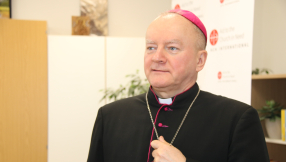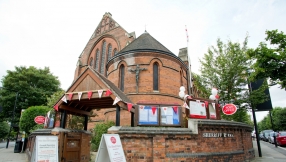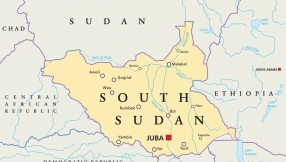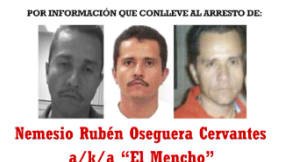Mandela Urges the Rich to Free the World from Poverty
The respectable Nobel Peace Prize Winner Nelson Mandela yesterday spoke in London's Trafalgar Square after he was invited by the UK-based anti-poverty campaign "Make Poverty History". The event drew several thousands of Britons and marks a remarkable stage in the history of Britain's effort in fighting poverty.
Mandela, as a former South African President and once a prisoner of the country's apartheid government, has deeply experienced the bitterness of his people who are trapped in poverty and injustice. However, instead of talking about theory and policy like many other leaders, he gave a meaningful reflection on the world’s most desperate problem that threatens one-forth of the world’s population.
"In this new century, millions of people in the world's poorest countries remain imprisoned, enslaved and in chains. They are trapped in the prison of poverty. It is time to set them free," Mandela said to a rousing applause from the heated crowd.
"Like slavery and apartheid, poverty is not natural. It is man-made and it can be overcome and eradicated by the actions of human beings."
He further elaborated his point that the rich, while they are enjoying the fruits of civilisation; they should recognise the other dark side of the world.
"Massive poverty and obscene inequality are such terrible scourges of our times - times in which the world boasts breathtaking advances in science, technology, industry and wealth accumulation - that they have to rank alongside slavery and apartheid as social evils."
"And overcoming poverty is not a gesture of charity. It is an act of justice. It is the protection of a fundamental human right, the right to dignity and a decent life." he affirmed.
Mandela then urged action from the developed countries to help the poor, "The steps that are needed from the developed nations are clear."
The first priority is ensuring trade justice, according to Mandela. He considered trade justice as a truly meaningful way for the developed countries to show commitment to bringing about an end to global poverty.
The second is an end to debt crisis for the poorest countries. The third is to deliver much more aid and make sure it is of the highest quality. This is in fact coherent with the three principles laid down by the "Make Poverty History" campaign.
United with the same belief of over 200 charities, charities, campaigns, trade unions, faith groups and celebrities involved in the campaign, Mandela declared, "In 2005, there is a unique opportunity for making an impact."
Wearing the white band, a symbol for the campaign, Mandela encouraged the G7 Finance Ministers who will hold their meeting in London, "I say to all those leaders: do not look the other way; do not hesitate. Recognise that the world is hungry for action, not words. Act with courage and vision."
"Make Poverty History in 2005. Make History in 2005. Then we can all stand with our heads held high," Mandela concluded his speech, emphasising the goal of the world once again.













